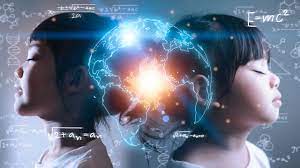AI Ethics: A Crucial Conversation About Our Children’s Future
The integration of Artificial Intelligence (AI) into our daily lives is becoming more pervasive, and nowhere is this more significant than in the lives of our children. Recent insights from the Oxford Martin Programme on Ethical Web and Data Architectures highlight a pressing need for a more thoughtful approach to embedding ethical principles into the development and regulation of AI technologies, with a particular focus on childhood development.
Understanding the Challenge
Children’s development is complex and diversified, yet AI systems often fail to consider factors such as age, stages of development, and individual personalities. Traditional roles of guardians are evolving with the digital age, and this calls for a balance between technological innovation and the preservation of children’s best interests and rights.
AI Assisting in Safeguarding Children
AI tools have shown potential in enhancing children’s safety online by identifying inappropriate content. For instance, AI-driven tools, specifically those involving Large Language Models, are being developed to aid children with conditions like ADHD. Yet, there is much to be done in terms of integrating safeguarding principles into these technologies.
Moving Towards a Solution
Proposed solutions by Oxford researchers include increased stakeholder involvement, direct support for AI system designers and developers, and the establishment of legal and professional accountability mechanisms centered around children’s interests.
The Inevitability of AI in Children’s Lives
Dr. Jun Zhao, Oxford Martin Fellow, emphasizes the importance of navigating AI’s role in children’s lives responsibly. The research published in Nature Machine Intelligence serves as a foundation for policy development and cross-sectoral collaboration in creating ethical AI technologies for children.
This comprehensive examination of global AI ethics principles identifies the gaps and opportunities for shaping an ethical framework that includes the well-being of our youngest generations. As we forge ahead, it is imperative that we involve all stakeholders, from parents to policymakers, in charting a course for ethical AI that genuinely considers the unique needs and rights of children.
